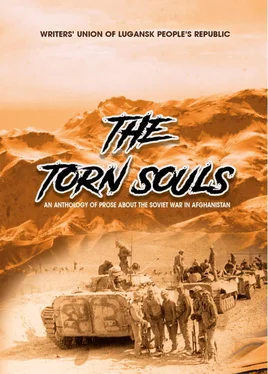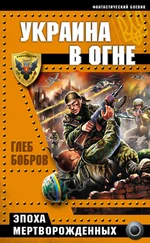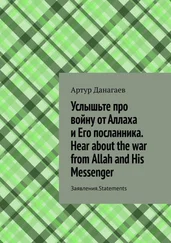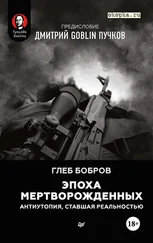The whole surface of this flat area was covered with some things that look like large pebbles and gray sand, or gravel. Maybe it was not gray. But low hanging heavy clouds did paint the entire surface in a gray colour. It was the beginning of snow season. In the middle of this area was something that we called “a river”: it was three metres wide, with a depth of half a metre, but with a very fierce current.
The main impression from our stay at Narai was a feeling of freezing cold; we felt damp there all the time. We also felt that our worse expectations were coming. Maybe it was an influence of neighbouring mountains: so visible after the last line of “pebbles”. The mountains did cover our horizon to the endless slopes, which we saw in a distance, but after that we could see nothing. Where do we have to go? When, why? What was waiting for us there? It was unknown. We were anxious.
Meanwhile, we put up tents and almost all our time we were trying to warm them up. We collected anything that can burn on this bare stony plateau: any sticks, wooden chips and flammable rubbish. We desperately needed to get a fire going because our cold pre-packed lunches should be heated up to be edible. At night we needed a fire to make our tents a bit warmer to be able to sleep.
Of course, all of these extra responsibilities were given to us. According to the unspoken army code, we were “young soldiers” who have not yet served the army long enough; we had been solders just a little bit longer than six months, to be exact — eight months, and four of them we served in Afghanistan.
Apart of these extra duties to organise our everyday life, we, “the youngest”, should be involved in all “leisure activities” for the whole military company — the platoon commander Plotnikov did not allow us to relax. The next day after arriving at the area, the second platoon was chosen for “leisure activities”, as commander Plotnikov decided to conduct a “swimming” day.
Even before the march, we have not been famous for our cleanness: we must do some unclean tasks — do dishes, do laundry, collect and carry coal, or wood, heating up stoves in tents. But during the march we became dirty as coal miners. How we could not be!? At every camp, we were constantly starting up a fire for heating up packed lunches in the zinc cans that were left after bombing. These cans we put on a smoky diesel fuel — we do not have firewood! No wonder why, Plotnikov was not impressed with us, military miners.
Plotnikov was a cheerful, solid, thickset man, about twenty eight years old, wearing a warm pea jacket — the safe heaven! Actually, our officers were fed well, and, no wonder, he put all his energy into actions. So, we were ordered to march to “the river”.
I cannot describe how we did not want to be separated from our warm pea jacket, regardless how short and thin these jackets were. No one was keen to take off the warm winter vest together with a shirt over it, but Plotnikov does not allow us to hesitate. In a minute, all naked torsos were exposed and covered with soapsuds, using, in turn, a pitiful bar of a soap taken from a laundry. First, we should wash our hands, and then, feeling almost nothing with these hands, we should proceed to wash our skinny bodies. (I remember that I felt worse than others. While we were driving along the mountains in an armoured car, I did not take off my cap with flaps, my wounded ear inflamed with discharges glued my ear firmly to my cap).
Naked up to the waist, but wearing a cap, I immediately attracted the platoon commander’s attention. After my explanation, he, without any hesitation, ordered me to remove the cap. I lingered for a minute, and he abruptly pulled off the cap together with a crust of dried pus and blood from my ear. At that moment it seemed to me like he pulled off my sore ear.
Realizing what he had done, Plotnikov extended the disaster: to balance damage control, he hit me in my healthy ear, then he called a medical instructor of the Company, Lenya Chmyr — as it was written on his badge, and ordered him to bandage my sore ear. Now, without even being at a “battle”, my head was bandaged up and looked wounded. This is why everybody, of course, mocked me about “a bandit bullet”. But there was another disadvantage — I became a very noticeable “white dot”, which officers and “veterans” (a military slang for soldiers after their second year army service — Editor) can pick up easily if they needed someone for their bullying exercises.
This was how my fate crossed with Grishin for the last time. Among all of the “veterans”, he had no standout particularity. He drew well, and, from time to time, he made illustrations for the company combat leaflet. When he was doing this, he locked himself up in Lenin’s room and drew quickly a main part, and after that — jumped into bed. I would like to comment that before our arrival, “veterans” always feel the lack of sleep, exactly like we, the “zelenye” (see “Terminology and glossary” — Editor), felt. But even with time they cannot get rid of the bad habit.
Gene Grishin belonged to the first platoon, which together with my second platoon was located on the same floor, opposite each other, next to the Lenin room. This is why I quite often was on lookout for him. In the case of a political officer, senior lieutenant Shmygalya, a Komsomol organizer company, or “the veteran” Rinat Gabaydulin appearing, I had to warn him, so he will jump up and pretend to be drawing.
I have no idea why Gene was a calm and normal “veteran”. Maybe because of his inclination towards the arts or maybe because he was called up for the military service from Klin, a quiet small town near Moscow, were the reasons, who knows?
He never bullied us; of course, he ordered us to do some of his work remembering the “veterans” law — “if you cannot make young solders do it, then do it yourself”.
So, in accordance with this law, in December ’84, I was “hooked” by Gene Grishin and his countryman Misha Sergeev.
These two were ordered to fetch some water from the river with an enormous bucket that had a volume of one hundred litres. For two people, it was possible to do, but my “white spot” was flashing and they immediately spotted me and ordered me to follow them. You see, in the army it was a matter of principle.
Of course, I made an attempt to elude them, but always gloomy Sergeev at that moment so dangerously hissed in his menacing tone that I decided to put up with them and do it. Misha compared to Gene, was tougher, he was the one who can easily give you a lesson of obedience; and because I already had one that ended up with the ringing in my ears — thanks to the platoon commander’s “educational work”, — I decided to do the job.
Filled with the water from the river, the enormous bucket was hooked by two of us with belts and we dragged it in turns (to be precise — they took turns, and I was working non-stop) towards the tents of our company.
I could not believe that on our way to the tents, Plotnikov spotted us. He immediately understood that “the young one” had been forced by the “veterans” to do their job, and after promising to give the “veterans” some problems in the near future, he “repossessed” me back.
The glances that were being cast at me by Grishin and Sergeyev were a bad omen. Now, these two have to drag this heavy and uncomfortable bucket back to the tents like “young soldiers”. In the army, any sort of defence from any officer led to a bigger problem. It was one of the soldiers’ rules.
Sadly, this is how I remembered Gene Grishin — with his angry eyes staring at me, the eyes almost colourless under the gray sky of Narai. It was less than a day before the Gene’s death — he was the very first man who died in front of me…
Читать дальше










